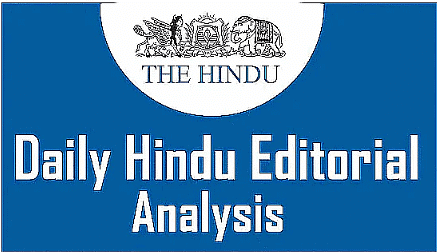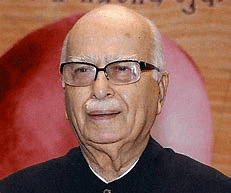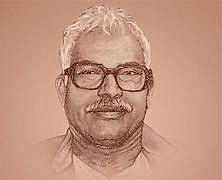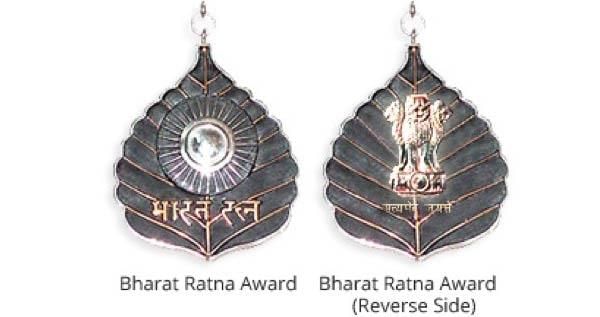The Hindu Editorial Analysis- 6th February 2024 | Current Affairs & Hindu Analysis: Daily, Weekly & Monthly - UPSC PDF Download

Honour and exception
Why in News?
The Bharat Ratna, the highest civilian honour of the country, has been conferred on 50 people since 1954. Bharatiya Janata Party (BJP) leader L.K. Advani and the late socialist leader, Karpoori Thakur, are the newest recipients. The making of national heroes is equally about the recipients as it is about its function as a stimulant of a collective consciousness.
L.K. Advani
Lal Krishna Advani was born on November 8, 1927 in Karachi, British India (now Pakistan). He belonged to a Sindhi Hindu family. Advani studied at St. Patrick’s High School in Karachi and later attended D.G. National College in Hyderabad, Sindh. After partition, his family migrated to Bombay where he completed his law degree from Government Law College.
Political Career
- Advani joined the Rashtriya Swayamsevak Sangh (RSS) in 1941 at age 14. He served as secretary of the Karachi unit in 1947. After partition, he worked as a pracharak in various districts of Rajasthan until 1952. In 1980, Advani helped found the Bharatiya Janata Party (BJP) along with Atal Bihari Vajpayee. Under his leadership, BJP emerged as a major political force based on Hindu nationalist ideology.
- Advani served as BJP President from 1986-1991 and again from 1993-1998. He was Leader of Opposition in the Lok Sabha from 1991-1993. Advani served as Home Minister from 1998-2004 and Deputy Prime Minister from 2002-2004 under Prime Minister Atal Bihari Vajpayee.
Contributions and Controversies
- Advani is known for leading the Ram Rath Yatra in 1990 which brought the Ram Mandir issue to national prominence. While credited for BJP’s rise, he has also been criticized for his role in the 1992 Babri Masjid demolition.
- As Home Minister, Advani oversaw responses to national security threats and the 1999 Kargil War. He promoted infrastructure development and economic growth.
Later Political Years
- After BJP lost the 2004 and 2009 general elections, Advani stepped back from senior party positions. He served as Leader of Opposition in Lok Sabha from 2009-2012. Advani won from the Gandhinagar constituency in the 2014 and 2019 elections before retiring from active politics in 2019 at age 92.
Awards and Recognition
- Advani was awarded the Padma Vibhushan in 2015.
Karpoori Thakur
Life and Career
- He was born in village Pitaunjhia (Karpoori Gram), in the Samastipur district of Bihar.
- He was voted in as an MLA in 1952 and remained an MLA till his death in 1988, except when he became an MP in 1977 and when he lost an Assembly election in 1984.
- Thakur was education minister of Bihar from March 5 1967 to January 28, 1968.
- Twice he was Bihar’s CM (December 1970-June 1971 and December 1977-April 1979).
- During his second innings as a CM he could not finish a full term because of the reservation policy he implemented.
- Democracy, debate and discussion were integral to him.
- He participated in the freedom struggle and was jailed (during the Quit India movement in 1942).
- He was part of the anti-Emergency movement along with the other key socialist leader Jayaprakash Narayan.
- He emerged as the tallest backward caste leader in Bihar despite belonging to the minority caste.
- Rise of the leaders he mentored, from numerically stronger castes Lalu Prasad from the Yadavs, Ram Vilas Paswan among Dalits, took away his pole position.
- He is known to have been firmly against dynastic politics.
Major Policy Decisions
- While his policy decisions were polarising, he was respected personally for his clean image.
- He is known for many of his decisions —
- Removing English as compulsory subject for the matriculation examinations;
- Prohibition of alcohol;
- Preferential treatment for unemployed engineers in government contracts,
- A layered Reservation system.
- Promotion of Hindi language in government offices.
- Declaring Urdu as the second official language in Bihar.
- Waiving school fees,
- Strengthening the Panchayati Raj system by holding regular elections.
- As a CM he took many steps for the welfare of senior citizens as well.
Layered Reservation System
- Thakur’s life revolved around the twin pillars of simplicity and social justice.
- In June 1970, the Bihar government appointed the Mungeri Lal Commission.
- Commission named 128 “backward” communities, 94 of which were identified as “most backward”.
- The Janata Party government of Thakur implemented the recommendations of the Commission.
- The ‘Karpoori Thakur Formula’ provided 26% reservation (in government services), of which
- OBCs-12% share,
- The economically backward classes among the OBCs-8%,
- Women-3%, and
- The poor from the “upper castes”– 3%.
- This reclassification was seen as a precursor to the Mandal Commission report that recommended 27% reservations for OBCs.
- Thakur faced derogatory and even abusive slogans from the upper castes, directly targeting his caste.
- Politically too, his decision of bringing in the reservation policy has been seen as hasty.
- He included Poors from the Upper Caste much before the GOI came up with the EWS quota.
Social Justice and Social Reform
- Social justice was most dear to Jan Nayak Karpoori Thakurji.
- He belonged to the most backward strata of society but he worked for all the people.
- He practiced “assimilative and inclusive politics”.
- Karpoori thakur and Jay Prakash Narayan of Janata Party launched the iconic ‘Sampoorna Kranti’ movement which aimed at transforming Indian society in a non-violent way.
- He envisioned a society where resources were distributed fairly and everyone, regardless of their social standing, had access to opportunities.
- He wanted to address the systemic inequalities that plagued Indian society.
- Throughout his political career, he worked to improve education facilities for the poor.
- He was a proponent of education in local languages so that people from small towns and villages could climb the ladder and attain success.
Bharat Ratna
- The Bharat Ratna is India’s highest civilian honour, established in 1954.
- The original statute, released in January 1954, did not contain any provision for posthumous awards. The provision for posthumous awards was added in the 1966 statute.
- On the Prime Minister’s suggestion to the President of India, a maximum of three Bharat Ratna awards can be presented each year.
- The awardees are not allowed to use Bharat Ratna as a prefix or suffix to their names, as stated in Article 18(1) of the IC.
There is no formal requirement that the Bharat Ratna be granted solely to Indian nationals.
- This prestigious prize was given to a naturalized Indian citizen, Agnes Gonxha Bojaxhiu, popularly known as Mother Teresa (1980).
- The prize was given to Non-Indians like-
- The first recipients of the Bharat Ratna were Sarvapalli Radhakrishnan, Sir C.V. Raman, and Chakravarti Rajagopalachari in 1954.
- Sachin Tendulkar is the first sportsperson and the youngest recipient of the Bharat Ratna.
Award’s Design
- The recipient of the award receives a Sanad (certificate) signed by the President and a medallion.
- The medallion is cast in Bronze.
- The design of the medallion resembles the leaf of the pipal tree, with a sunburst in the center. The words ‘Bharat Ratna’ are engraved below it.
- The emblem of India is embossed on the back, & ‘Satyameva Jayate’ inscribed in Devanagari script.
- The award does not include any monetary endowment.
Who is Eligible for Bharat Ratna?
- Initially, the Bharat Ratna was only awarded for achievements in literature, science, arts, and public services.
- GoI expanded the criteria in 2011 to include “any field of human endeavor”.
- There is no written rule stating that the Bharat Ratna can only be awarded to Indian citizens.
Controversies Related to Bharat Ratna
- In 1992, Subhash Chandra Bose was posthumously awarded the Bharat Ratna.
- However, due to the lack of concrete evidence regarding his death, his family refused to accept the award.
|
38 videos|5288 docs|1117 tests
|



















